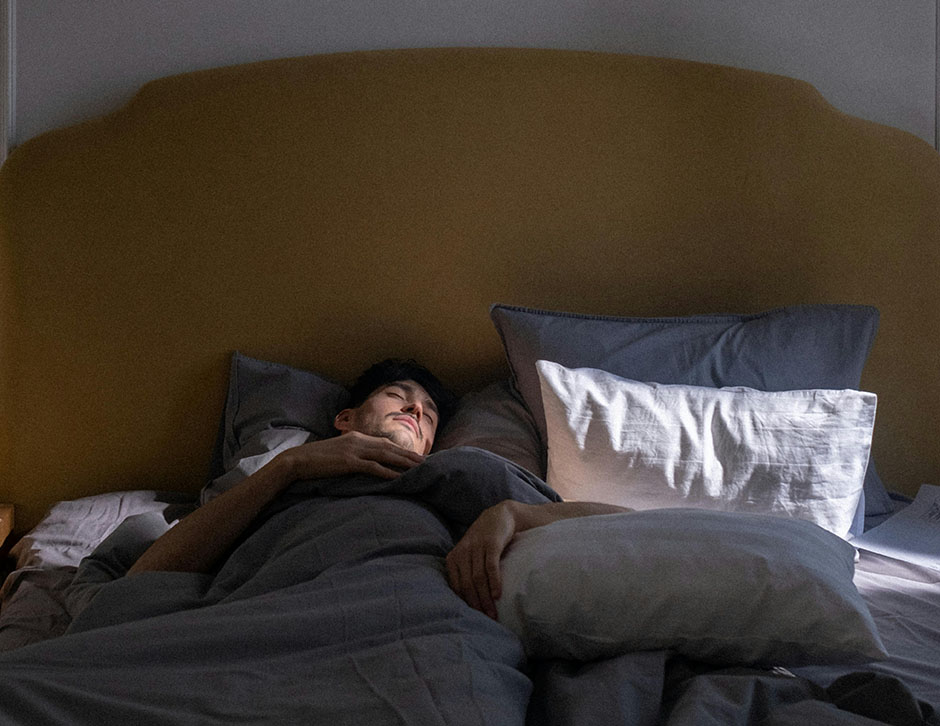
Here’s what we’ll cover in this blog post:
- How sleep functions as the body’s built-in repair system
- What happens in the brain during deep sleep
- How sleep and long-term health go hand-in-hand
- Simple, science-backed ways to improve your sleep
We often think of sleep as a luxury—something we can trade for a few more hours of productivity, entertainment, or to-do list tackling. But the science tells a different story.
Sleep isn’t optional. It’s essential. It plays a central role in almost every major system in your body, impacting everything from immune defense to memory formation to metabolic health and when you skip it, the consequences go far deeper than just feeling tired.
Sleep as a Biological Detox
One of the most fascinating discoveries in sleep research is its role in detoxifying the brain. During deep sleep, brain cells (called glia) shrink slightly, making room for cerebrospinal fluid to flush out harmful waste products—especially beta-amyloid, a protein associated with Alzheimer’s disease. It’s a biological rinse cycle that happens every night—if you let it.
When sleep is regularly disrupted or shortened, these waste-clearing processes can’t keep up. Over time, that buildup may contribute to neurodegeneration and cognitive decline.
What Happens While You Sleep?
Sleep isn’t one-size-fits-all. Your brain cycles through five stages of sleep roughly every 90 minutes—each with a unique role in your health:
Light sleep (Stages 1–2):
Your body begins to shift into rest mode. The heart rate slows, stress hormones decline, and the brain starts organizing memories.
Deep sleep (Stages 3–4):
This is where repair happens. Growth hormone is released. Insulin sensitivity improves. Blood sugar stabilizes. Muscles, bones, and tissues recover. Your immune system resets.
REM sleep (Stage 5):
Brain activity spikes. But instead of managing your inbox, your brain processes emotions, integrates memories, and creates new connections—helping to support mental clarity, emotional resilience, and long-term brain health.
Personalized Medicine—While You Sleep
Your brain dynamically adjusts the amount of time spent in each sleep stage depending on what you need most.
Going through emotional stress? You’ll get more REM.
Recovering from physical activity? Expect more deep sleep.
Mentally burned out? Your brain may increase light sleep to help reset your nervous system.
In other words, sleep is a self-regulating, personalized system designed to help you recover physically, mentally, and emotionally.
But it only works if you give it time to do its job.
Sleep and Long-Term Health
Sleep deprivation doesn’t just make you groggy—it may quietly chip away at your health over time.
A growing body of research links inadequate sleep to serious long-term risks:
- Higher dementia risk
Fewer than six hours of sleep in midlife is linked to a 30% increased risk of dementia later in life. - Weakened immune system
Just one night of poor sleep can reduce immune function, making it easier to get sick. - Increased risk of chronic disease
Poor sleep contributes to chronic diseases like obesity, heart disease, diabetes, and even cancer.
And perhaps most importantly, even the best health habits like exercise, supplements, and a clean diet can be undone by chronic sleep loss.
Why Sleep Matters for Your Longevity
Sleep isn’t just about feeling rested. It’s about building resilience, protecting your brain, regulating your hormones, reducing inflammation, and giving your body the time it needs to heal and adapt.
If you’re serious about longevity, sleep needs to be non-negotiable.
How You Can Take Action
Here are practical, evidence-based strategies to improve your sleep and support your long-term health:
- Dim the lights
As the sun sets, reduce exposure to overhead and blue light. Darkness signals your brain that it’s time to produce melatonin. - Cool your bedroom
Sleep quality improves in cooler environments. Aim for a room temperature of around 67°F. - Time your meals
Avoid food, alcohol, caffeine, and sugary drinks 2–3 hours before bed. Digestion increases body temperature and can interfere with sleep onset. - Get natural movement
Light exercise, like a walk 2–3 hours before bed, can help promote the release of orexin, a hormone that supports healthy sleep cycles. - Consider prescription support
Prescriptions such as low-dose Trazodone have been shown to improve both sleep onset and quality.
The Bottom Line
Sleep is one of the most powerful, natural longevity tools we have—and also one of the most overlooked.
Sleep and long-term health go hand-in-hand. It protects your heart, your brain, your metabolism, and your immune system. And best of all, it’s free.
So the next time you’re tempted to burn the midnight oil, remember: Prioritizing sleep isn’t a tradeoff. It’s an investment in your future health, energy, and longevity.
Note: The above statements have not been evaluated by the Food and Drug Administration. This product is not intended to diagnose, treat, cure, or prevent any disease.
